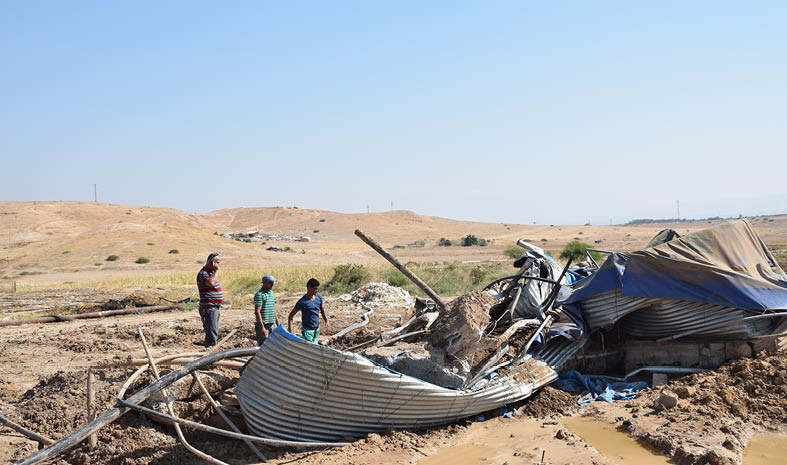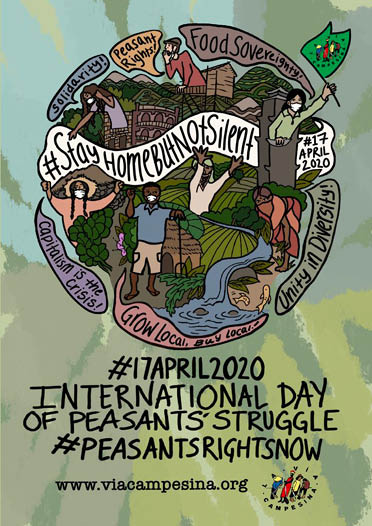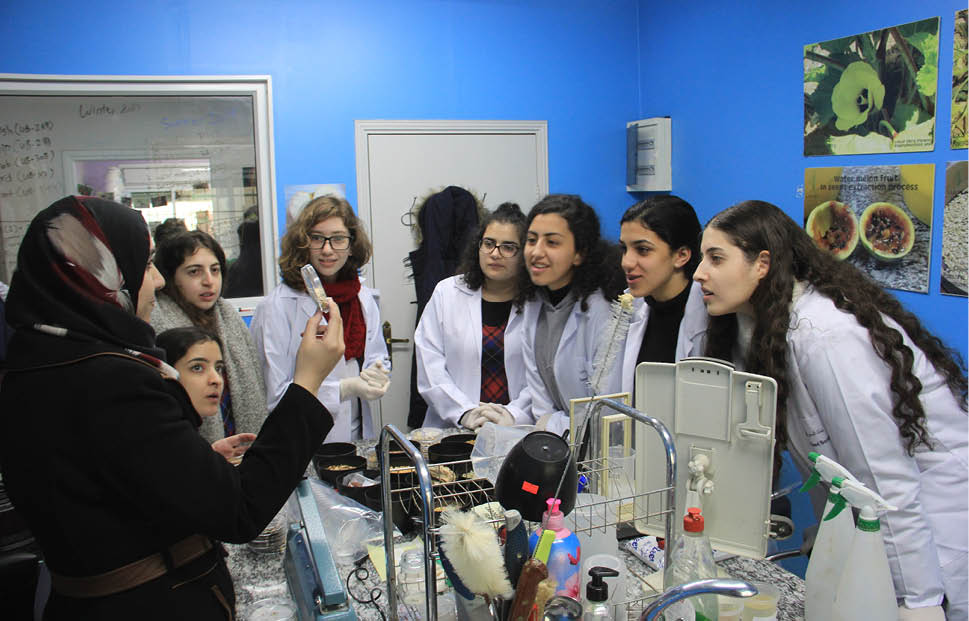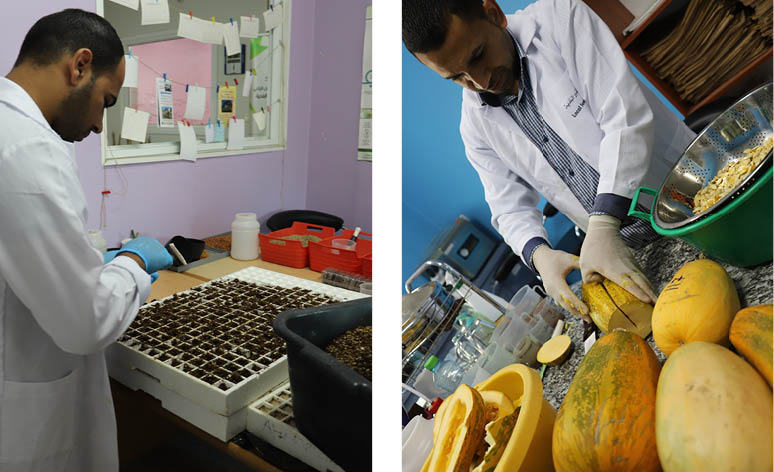Over the past two decades, the world has come to realize that the current capitalist developmental model is untenable and incompatible with nature and life. We are witnessing successive food crises, a sharp rise in prices, biodiversity loss, diseases, water and air pollution, global warming, depletion of resources, and more.*1 All these crises came as a result of a system that enables 500 powerful, private intercontinental companies in all fields of industry, services, and finance to control 52.8 percent of the world’s crude production. Moreover, the outbreak of the COVID-19 pandemic has exposed the systemic weaknesses in global health and food systems, and the ensuing economic crisis has proven once again that we need to enact globally a profound change that introduces a structural transformation in the agri-food systems.
In his book Capitalism Explained to My Granddaughter, Jean Ziegler contends that even though since the turn of the century, humanity has enjoyed an abundance of goods that has exceeded its demands, one child under the age of ten dies of hunger every five seconds.*2 This shocking fact is reason enough to call for adopting the concept of food sovereignty.

Food security, as defined by the United Nations’ Committee on World Food Security, means that all people at all times have physical, social, and economic access to sufficient, safe, and nutritious food. Accordingly, the concept of food security is a social concept rooted in a capitalist context; it does not distinguish where food comes from, nor does it consider the conditions under which it is produced and distributed. The concept of food sovereignty, however, emphasizes ecologically appropriate production, distribution, and consumption, social-economic justice, and the strengthening of local food systems as ways to tackle hunger and poverty and guarantee sustainable food security for all peoples. Food sovereignty affirms that food is not only a fundamental human right, it also carries political connotations.
Political forces have worked for many years to control all aspects of food production systems and bring the cycle of food production – seeds, inputs, land, and other necessities – under a centralized and increasingly privatized control. Therefore, when the international farmers’ movement La Via Campesina first introduced the concept, it wanted to advocate the kind of trade and investment that serves the collective aspirations of society and promotes community control of productive resources; agrarian reform and tenure security for small-scale producers; agro-ecology; biodiversity; local knowledge; the rights of peasants, women, indigenous peoples, and workers; social protection; and climate justice. Regarding the above-mentioned aspects of food sovereignty, the Union of Agricultural Work Committees states, “In the Palestinian context, the issue of food sovereignty is of great importance, considering the Israeli military occupation that has full control over Palestinian natural resources, including land, water, pastures, and fisheries.”*3
Food sovereignty, including control over natural resources, land, and water, is our effective tool to face the real pandemic – the Israeli occupation.
The Israeli occupation places special emphasis on controlling Palestinian food production in order to prevent any attempt towards self-sufficiency and disengagement with its economy. Several reports issued by the United Nations Office for the Coordination of Humanitarian Affairs reveal that most of the buildings, installations, and lands targeted by the Israeli occupation in Palestine support livelihoods in agriculture, grazing, and trade.*4 In addition, the occupation has designed procedures and agreements that enable it to retain its control over food, such as the Paris Economic Protocol, which granted the Israeli government both control over the Palestinian economy and the benefit of protecting its own market.

Food security leads us to care only for the provision of food. Therefore, as a result of the Oslo Accords, the Palestinian market became among the largest importing markets of Israeli products. By the end of 2017, the Palestinian agricultural sector’s exports to Israel were about US$64 million, of which approximately US$56.8 million were fresh vegetable exports, around 88.7 percent, and US$7.2 million were animal exports, 11.3 percent. While imports from the Israeli agricultural sector were about US$362.1 million – which means that there was a gap of approximately US$298.1 million – about US$152.9 million of which were fresh vegetable imports, 42.2 percent of the total agricultural imports, and US$209.3 million were animal imports, 57.8 percent. Furthermore, there are no international exports of animals from Palestine, only imports, and the value of imports of live animals in 2017 was about US$108,333 million, whereas exports were zero.*5

Despite all the food aid programs in Palestine, the United Nations World Food Program reported in 2018 that food insecurity in the West Bank and Gaza Strip was increasing, affecting one-third of the Palestinian population.*6 The situation is detrimental in Gaza, where nearly 70 percent of the population suffers from food insecurity.*7
This is why we should give attention to food sovereignty, which cares for agroecology – the peasant way to produce food. Given that peasants and small-scale farmers represent more than 90 percent of Palestinian agricultural holdings, it is time to stand up and provide protection for small-scale farmers and support their resilience and steadfastness on their land. Food sovereignty is the tool and the concept that guarantees that small farmers will remain in control of their means of production. The COVID-19 crisis is a wakeup call for the whole world and especially for the Palestinians. We have to revive the value of agriculture as a productive sector that contributes not only to the GDP – where its contribution has decreased from 36 percent in the 1970s to about 3 percent in 2017 – but also to the steadfastness of the people.

This article is a call to protect peasants’ rights to food sovereignty and access to natural resources, as well as to manage and nurture the ecosystems around them to ensure a food supply for all of us. It is a call to the Palestinian Authority to adopt national protective policies that benefit the majority of the Palestinian population and that prioritize care for the most vulnerable sectors, such as small-scale farmers, rural workers, women, fishers, and the working class on the basis of the United Nations Declaration on the Rights of Peasants and Other People Working in Rural Areas.
If we succeed in getting the agricultural sector back on its feet, then we will succeed in getting Palestine back on its feet.
Article photos courtesy of the author.
*1 Fuad Abu Saif, “The Palestinian Agricultural Sector Is Fighting the Pandemic and before it the Occupation,” (in Arabic), Institute for Palestine Studies, April 16, 2020, available at https://www.palestine-studies.org/ar/node/1649949.
*2 TIM Press, “Capitalism Explained to My Granddaughter,” by Jean Ziegler, available at https://tim-press.hr/en/books/capitalism-explained-to-my-granddaughter/.
*3 Union of Agricultural Work Committees, Call for Participation in the 2019 Conference on Food Sovereignty…Colonization and Borders, available at https://uawc-pal.org/upludes/center/en.pdf.
*4 United Nations Office for the Coordination of Humanitarian Affairs, “West Bank demolitions and displacement | February 2018,” available at https://www.ochaopt.org/content/west-bank-demolitions-and-displacement-february-2018.
*5 Palestinian Central Bureau of Statistics, “Monitored Foreign Trade Statistics 2017,” available at http://www.pcbs.gov.ps/site/lang__en/712/default.aspx.
*6 United Nations World Food Program report in 2018, available at https://www.wfp.org/countries/palestine.
*7 Ibid.


